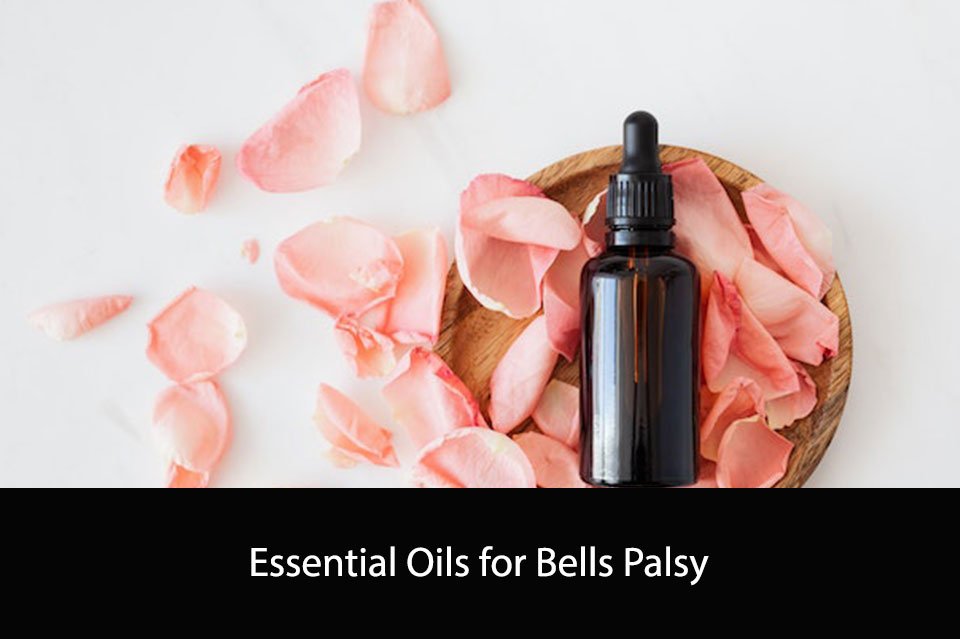Essential oils have been used for centuries for their medicinal properties, and recent studies have shown that they can be beneficial for the lymphatic system. The lymphatic system is responsible for removing toxins and waste from the body, and when it becomes sluggish, it can lead to a variety of health issues. Essential oils can help to stimulate the lymphatic system, improve circulation, and promote detoxification.
Some of the best essential oils for the lymphatic system include grapefruit, lemon, cypress, and juniper. These oils are known for their detoxifying properties and can help to reduce inflammation and swelling in the lymph nodes. When used in combination with massage or dry brushing, these oils can help to improve lymphatic flow and promote overall health and wellness.
It’s important to note that essential oils should be used with caution and under the guidance of a qualified practitioner. While they can be beneficial for the lymphatic system, they can also be irritating or even toxic if used improperly. With the right knowledge and care, however, essential oils can be a powerful tool for supporting the health of the lymphatic system.
Understanding the Lymphatic System

The lymphatic system is an essential part of our body’s immune system, responsible for helping to eliminate toxins, waste products, and other harmful substances from our body. It is a network of vessels and organs that work together to transport lymph, a clear fluid that contains white blood cells, throughout our body.
The lymphatic system plays a crucial role in maintaining the balance of fluids in our body, as well as helping to fight infections and diseases. It is also responsible for transporting fats and fat-soluble vitamins from our digestive system to our bloodstream.
The lymphatic system consists of lymphatic vessels, lymph nodes, the spleen, the thymus gland, and the tonsils. Lymphatic vessels are thin tubes that carry lymph throughout our body, while lymph nodes act as filters, trapping and destroying harmful substances.
The spleen is the largest organ in the lymphatic system and is responsible for filtering blood and removing old or damaged red blood cells. The thymus gland is located in the chest and helps to produce and mature white blood cells called T-cells. The tonsils are located in the back of our throat and help to trap and destroy harmful substances that we breathe in.
Understanding the lymphatic system is essential for maintaining good health and preventing illness. By taking care of our lymphatic system through healthy eating, exercise, and other lifestyle choices, we can help to ensure that our body is able to eliminate toxins and fight infections effectively.
Essential Oils Overview
We have found that essential oils can be a useful tool in supporting the lymphatic system. The lymphatic system is responsible for removing waste and toxins from the body, and when it is not functioning properly, it can lead to a variety of health issues.
Essential oils are highly concentrated plant extracts that can be used for a variety of purposes, including supporting the lymphatic system. Some essential oils have been found to have properties that can help stimulate lymphatic flow, reduce inflammation, and support the immune system.
Here are some of the essential oils we have found to be particularly helpful for the lymphatic system:
- Lemon essential oil: Lemon essential oil has been found to have a detoxifying effect on the lymphatic system. It can help stimulate lymphatic flow and reduce inflammation, making it a useful tool for supporting overall lymphatic health.
- Grapefruit essential oil: Grapefruit essential oil is another oil that can help stimulate lymphatic flow. It has been found to have a diuretic effect, which can help reduce fluid retention and support the lymphatic system.
- Cypress essential oil: Cypress essential oil has been found to have a toning effect on the lymphatic system. It can help improve circulation and reduce swelling, making it a useful tool for supporting lymphatic health.
- Frankincense essential oil: Frankincense essential oil has been found to have anti-inflammatory properties, which can help reduce inflammation in the lymphatic system. It can also help support the immune system, making it a useful tool for overall lymphatic health.
It is important to note that essential oils should always be used with caution and under the guidance of a qualified healthcare professional. While essential oils can be a useful tool for supporting lymphatic health, they should not be used as a substitute for medical treatment.
Top Essential Oils for Lymphatic Health

When it comes to supporting the lymphatic system, essential oils can be a valuable tool. Here are some of the top essential oils that can help promote lymphatic health:
Lemon Oil
Lemon oil is a popular choice for supporting lymphatic health due to its detoxifying properties. It can help stimulate lymphatic drainage and support the body’s natural cleansing processes. Lemon oil can be used topically or diffused to promote lymphatic health.
Grapefruit Oil
Grapefruit oil is another essential oil that can help support the lymphatic system. It has a cleansing effect on the lymphatic system and can help promote lymphatic drainage. Grapefruit oil can be used topically or diffused to support lymphatic health.
Bay Laurel Oil
Bay laurel oil is known for its anti-inflammatory properties, which can be beneficial for the lymphatic system. It can help reduce swelling and inflammation in the lymph nodes and promote lymphatic drainage. Bay laurel oil can be used topically or diffused to support lymphatic health.
Geranium Oil
Geranium oil is a popular choice for supporting lymphatic health due to its detoxifying and anti-inflammatory properties. It can help stimulate lymphatic drainage and reduce inflammation in the lymph nodes. Geranium oil can be used topically or diffused to promote lymphatic health.
Overall, essential oils can be a valuable tool for supporting lymphatic health. However, it’s important to use them safely and consult with a healthcare professional before use.
Methods of Using Essential Oils for the Lymphatic System
When it comes to using essential oils for the lymphatic system, there are several methods that you can try. Each method has its own benefits and drawbacks, so it’s important to choose the one that works best for you.
Topical Application
One of the most popular ways to use essential oils for the lymphatic system is through topical application. This involves diluting the oil in a carrier oil and applying it directly to the skin. Some of the best carrier oils for lymphatic massage include coconut oil, jojoba oil, and sweet almond oil.
When applying the oil, it’s important to massage it in gently using circular motions. This can help to stimulate lymphatic flow and encourage the removal of toxins from the body. Some of the best essential oils for topical application include grapefruit, lemon, and cypress.
Aromatherapy
Another way to use essential oils for the lymphatic system is through aromatherapy. This involves inhaling the oils through a diffuser or by adding a few drops to a bowl of hot water. Aromatherapy can help to stimulate lymphatic flow and promote relaxation.
Some of the best essential oils for aromatherapy include lavender, peppermint, and eucalyptus. These oils can help to reduce inflammation and promote lymphatic drainage.
Baths
Finally, you can also use essential oils for the lymphatic system by taking a bath. Adding a few drops of essential oil to your bathwater can help to stimulate lymphatic flow and promote relaxation. Some of the best essential oils for baths include rosemary, ginger, and juniper.
When taking a bath with essential oils, it’s important to dilute the oil in a carrier oil first. This can help to prevent skin irritation and ensure that the oil is evenly distributed in the water.
Overall, there are several methods that you can use to incorporate essential oils into your lymphatic system health routine. Whether you prefer topical application, aromatherapy, or baths, there’s an essential oil out there that can help to support your lymphatic system health.
Benefits of Essential Oils for Lymphatic Support

Essential oils have been used for centuries to support the lymphatic system. The lymphatic system plays a crucial role in our body’s immune system, helping to remove waste and toxins from our cells. Here are some of the benefits of using essential oils to support the lymphatic system:
- Reduces inflammation – Essential oils such as frankincense, ginger, and turmeric have anti-inflammatory properties that can help reduce inflammation in the lymphatic system. This can help improve lymphatic flow and reduce swelling.
- Boosts immune system – Essential oils such as lemon, peppermint, and eucalyptus have immune-boosting properties that can help support the lymphatic system. These oils can help fight off infections and improve overall immune function.
- Improves circulation – Essential oils such as cypress, rosemary, and grapefruit can help improve circulation in the lymphatic system. This can help improve lymphatic flow and reduce congestion.
- Detoxifies the body – Essential oils such as juniper berry, grapefruit, and lemon can help detoxify the lymphatic system. These oils can help remove toxins and waste from the body, improving overall health and wellness.
Incorporating essential oils into your daily routine can help support the lymphatic system and improve overall health and wellness. However, it’s important to remember that essential oils should be used with caution and under the guidance of a healthcare professional.
Safety and Precautions
When using essential oils for the lymphatic system, it is important to take certain safety precautions to avoid any adverse reactions. Here are some guidelines to follow:
Dilution Guidelines
Essential oils are highly concentrated and should never be used undiluted on the skin. Diluting essential oils with a carrier oil, such as coconut oil, is recommended to ensure safe use. The recommended dilution ratio is 1-2 drops of essential oil per 1 teaspoon of carrier oil. However, some essential oils may require a higher dilution ratio, so it is important to check the specific dilution guidelines for each oil.
Skin Patch Test
Before using any essential oil for the first time, it is important to perform a skin patch test to check for any allergic reactions. To do this, mix 1 drop of essential oil with 1 teaspoon of carrier oil and apply a small amount to the inside of your wrist. Wait 24 hours and if there is no redness or irritation, it is safe to use the essential oil.
Consultation with Health Professionals
If you are pregnant, breastfeeding, have a medical condition, or are taking medication, it is important to consult with a health professional before using essential oils. Some essential oils may interact with certain medications or may not be safe for use during pregnancy or breastfeeding. It is always better to be safe than sorry, so if you are unsure, it is best to seek professional advice.
By following these safety guidelines, you can safely and effectively use essential oils for the lymphatic system. Remember to always use high-quality, pure essential oils and to store them in a cool, dry place away from direct sunlight.
Integrating Essential Oils into Lymphatic Health Routines
Essential oils can be a great addition to your lymphatic health routine. They can help to stimulate lymphatic flow, reduce inflammation, and support the immune system. Here are some ways to integrate essential oils into your lymphatic health routine:
Massage
Massage can be a great way to stimulate lymphatic flow and reduce inflammation. Essential oils can be added to massage oil or lotion to enhance the benefits of massage. Some essential oils that are particularly beneficial for lymphatic health include:
- Lemon
- Grapefruit
- Cypress
- Frankincense
- Lavender
Bath
Taking a bath with essential oils can be a relaxing way to support lymphatic health. Essential oils can be added to bath salts or a carrier oil before being added to the bath. Some essential oils that are particularly beneficial for lymphatic health include:
- Eucalyptus
- Tea tree
- Rosemary
- Juniper berry
- Geranium
Inhalation
Inhalation of essential oils can be a quick and easy way to support lymphatic health. Essential oils can be added to a diffuser or a steam inhaler. Some essential oils that are particularly beneficial for lymphatic health include:
- Peppermint
- Lemon
- Rosemary
- Eucalyptus
- Tea tree
By integrating essential oils into your lymphatic health routine, you can support lymphatic flow, reduce inflammation, and support the immune system. However, it is important to remember that essential oils should not be used as a substitute for medical treatment. If you have any concerns about your lymphatic health, please consult with a healthcare professional.
Research and Evidence on Essential Oils and Lymphatic Function
We have reviewed several studies on the use of essential oils for lymphatic function and found some promising results. Here are some of the key findings:
- A study published in the Journal of Alternative and Complementary Medicine found that a blend of essential oils including grapefruit, cypress, and juniper improved lymphatic drainage in a group of women with mild to moderate cellulite. The authors suggested that the oils may have stimulated lymphatic circulation and reduced fluid retention.
- In a study published in the Journal of Cosmetic Dermatology, a blend of essential oils including grapefruit, cypress, and lavender was found to reduce thigh circumference and improve skin texture in a group of women with cellulite. The authors suggested that the oils may have improved lymphatic circulation and reduced inflammation.
- Another study published in the Journal of Lymphoedema found that a blend of essential oils including lemon, cypress, and ginger reduced lymphedema symptoms in a group of breast cancer survivors. The authors suggested that the oils may have improved lymphatic circulation and reduced inflammation.
While these studies are promising, more research is needed to fully understand the effects of essential oils on lymphatic function. It is important to note that essential oils should not be used as a substitute for medical treatment and should be used with caution, as some oils may cause skin irritation or other adverse effects. It is recommended to consult with a healthcare professional before using essential oils for lymphatic function.
Additional Supportive Practices for Lymphatic Health

In addition to using essential oils, there are several other practices that can support lymphatic health. Here are a few:
Dry Brushing
Dry brushing is a technique where you use a dry brush to gently massage your skin in circular motions. This can help to stimulate lymphatic flow and promote detoxification. It’s best to start at your feet and work your way up your body, using long strokes towards your heart.
Exercise
Regular exercise can also help to support lymphatic flow. Movement helps to stimulate lymphatic vessels and promote the movement of lymphatic fluid. Try to incorporate both aerobic exercise and strength training into your routine for the best results.
Hydration
Drinking plenty of water is essential for lymphatic health. When you’re dehydrated, lymphatic fluid can become thick and sluggish, which can impede lymphatic flow. Aim to drink at least 8 glasses of water a day to support lymphatic function.
Massage
Massage can also be helpful for promoting lymphatic flow. A lymphatic massage is a specific type of massage that focuses on stimulating lymphatic vessels and promoting lymphatic drainage. If you’re interested in trying a lymphatic massage, be sure to find a qualified therapist who is trained in this technique.
Compression Garments
Compression garments can also be helpful for supporting lymphatic function. These garments are designed to help compress tissues and stimulate lymphatic flow. They’re often used to manage lymphedema, a condition where lymphatic fluid accumulates in the tissues and causes swelling.
By incorporating these practices into your daily routine, you can help to support lymphatic health and promote overall wellness.
Frequently Asked Questions
What are the top essential oils recommended for lymphatic drainage massage?
Some of the best essential oils for lymphatic drainage massage include lemon, grapefruit, cypress, and juniper berry. These oils are known for their detoxifying and anti-inflammatory properties, which can help to stimulate lymphatic flow and reduce swelling.
How should essential oils be applied to facilitate lymph drainage?
Essential oils can be applied topically to the skin using a carrier oil, such as almond or jojoba oil. To facilitate lymph drainage, it is recommended to massage the oil into the skin using gentle, circular motions. This can help to stimulate lymphatic flow and reduce swelling.
Can frankincense essential oil be beneficial for lymph nodes?
Yes, frankincense essential oil is known for its anti-inflammatory properties and can be beneficial for lymph nodes. It can help to reduce swelling and inflammation, and may also help to stimulate lymphatic flow.
Which essential oils can help reduce swelling in underarm lymph nodes?
Tea tree oil and lavender oil are both known for their anti-inflammatory properties and can be beneficial for reducing swelling in underarm lymph nodes. These oils can be applied topically to the skin using a carrier oil.
How can ginger oil be effectively used in a lymphatic drainage massage?
Ginger oil is known for its warming and stimulating properties, which can help to improve circulation and stimulate lymphatic flow. To use ginger oil in a lymphatic drainage massage, it can be mixed with a carrier oil and applied topically to the skin using gentle, circular motions.
Are there any specific essential oils recommended by experts like Dr. Axe for lymphatic support?
Yes, some of the essential oils recommended by experts like Dr. Axe for lymphatic support include lemon, grapefruit, cypress, and juniper berry. These oils are known for their detoxifying and anti-inflammatory properties, which can help to stimulate lymphatic flow and reduce swelling.





